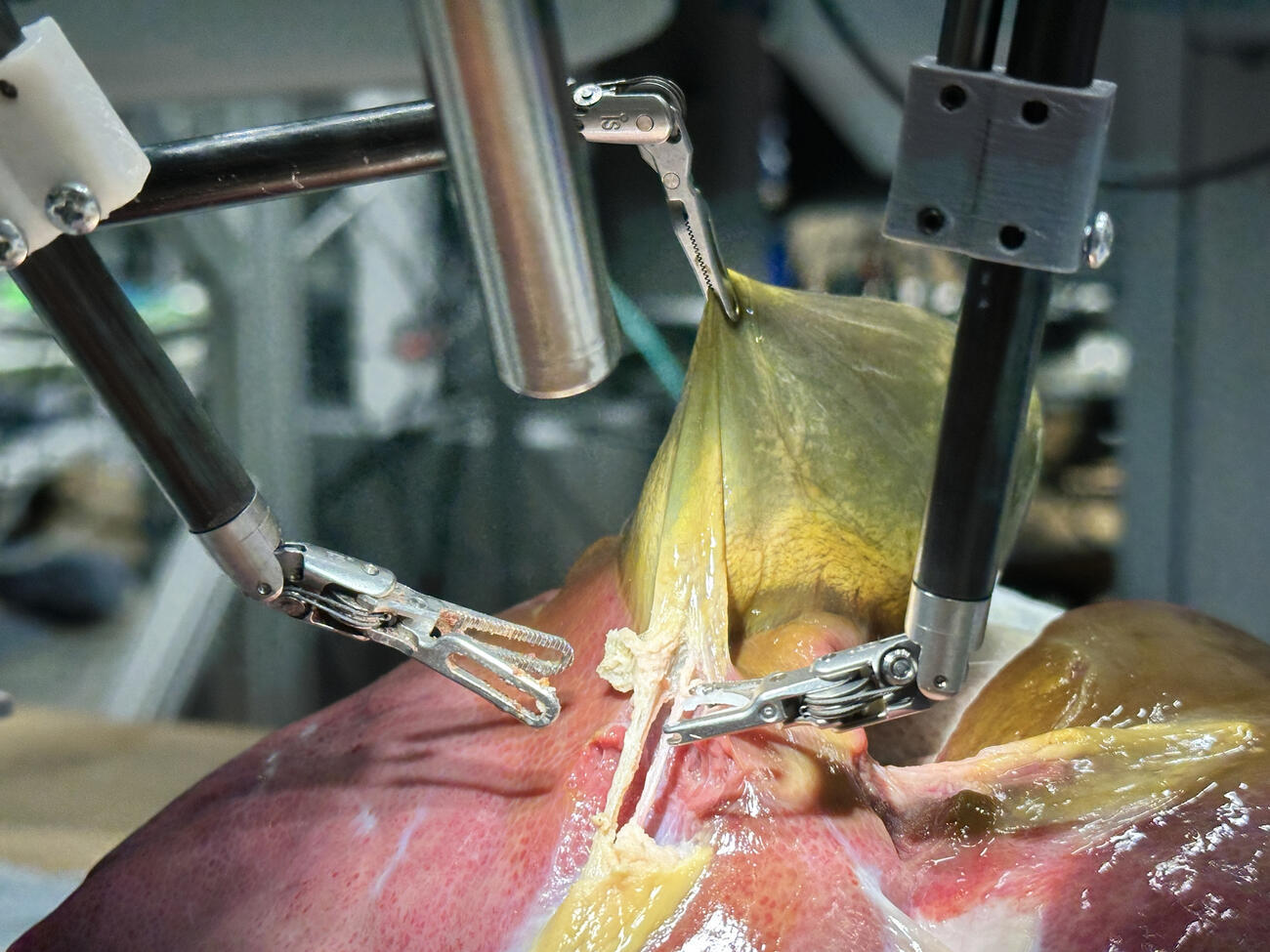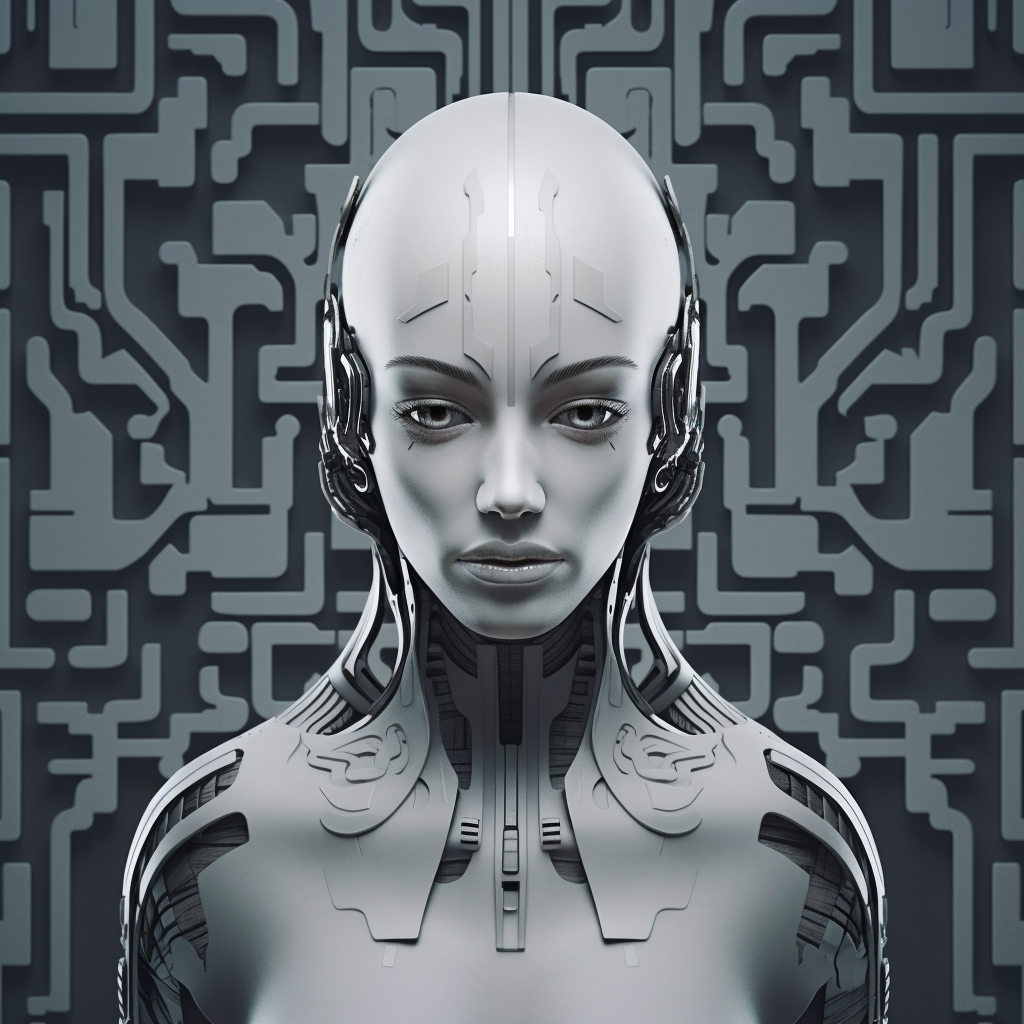A robot trained on videos of surgeries performed a lengthy phase of a gallbladder removal without human help. The robot operated for the first time on a lifelike patient, and during the operation, responded to and learned from voice commands from the team—like a novice surgeon working with a mentor.
The robot performed unflappably across trials and with the expertise of a skilled human surgeon, even during unexpected scenarios typical in real life medical emergencies.
deleted by creator
know what? let’s just skip the middleman and have the CEO undergo the same operation. you know like the taser company that tasers their employees.
can’t have trust in a product unless you use the product.
I understand what you are saying is intended as „if they trust their product they should use it themselves“ and I agree with that
I do think that undergoing an operation that a person doesnt need isnt ethical however
who said they won’t need it 😐
TASER uses their products on their employees? Lol that’s wild
you don’t know the half of it.
https://www.reuters.com/investigates/special-report/axon-taser-exposures/
Shawn Gorman, a lawyer who worked at Axon until 2019, said the company had a high-pressure culture of loyalty, unlike anything he has seen in nearly two decades of practice.
“It was truly toxic,” he said.
this is an employee and her mother getting tased at one of these events.

Hey boss ready for your unnecessary heart transplant just to please some random guy on the internet?
Yeah so let’s get this done I’ve got a meeting in 2 hours.
Just like how we jail every surgeon that does something wrong
Nah, just a thorough reproduction of the consequences of that wrong.
Inb4 someone added Texas Chainsaw Massacre and Saw to the training data.
Then it saw Inner Space and invented nanobots. So you win some, you lose some.
without human help
…
responded to and learned from voice commands from the team
🤨🤔
They should have specified “without physical human help.”
I have seen enough ER to know that operating theatre staff work as a team. So I consider this would be a good thing.
You underestimate the demands on a surgeon’s body to perform surgery. This makes it much less prone to tiredness, mistakes, or even if the surgeon is physically incapable in any way of continuing life saving surgery
That’s absolutely not the point. I was criticizing the journalism, not technology. 🙄
So… Judging by recent trends in AI, this will be used to devalue the labor of surgeons and be provided as the only option available to people who are not rich. People will die from what would get a human charged with neglegent homicide but, it will be covered up and, when it comes to light just how dangerous it is, nothing will happen because all of the regulatory agencies have been dismantled.
Outside of the US there are pretty stringent rules about what can and cannot be used in the medical profession. Typically it will take at least a decade for a drug to be approved, which is actually a problem in and of itself, but you’re not concerned about that, you’re concerned about technology being used before it’s ready.
As for “devaluing the work of surgeons”, surgeons are overworked as it is, there is nowhere near enough of them. If they don’t have to do simple procedures then they are available to do the more complex surgeries that actually require skill. They’ll be fine. Wealth isn’t really a factor in countries where healthcare isn’t profit motivated.
OR maybe everyone — including the poor — will eventually have access to robotic surgeons with the equivalent of like 500 human years of experience, but with the latest surgical best practices that have only existed in recent years. The experience gained by a single surgery could be shared across all of them.
We’re talking about surgery. If some technology can provide significantly more valuable labor than its human counterpart (which, in this case, could mean more lives saved), then it might actually be worth exploring.
That would be wonderful. The current way that the world has been “working” for a good while now makes me think it unlikely, unfortunately. The vast majority of technological innovation in the last half-century has been used to extract wealth and replace options available to the non-ultra-wealthy with inferior substitutes that are cheaper to make, often for the same effective cost.
I would rather get surgery done by a robot than not get it done at all. I’m not gonna be picky about “devaluing surgeons” if my life is on the line, but if that’s the hill you wanna die on then good on ya, mate.
Who’s dying on what hill now?
Oh good it’s voice controlled. Because that technology works amazingly all the time.
Not fair. A robot can watch videos and perform surgery but when I do it I’m called a “monster” and “quack”.
But seriously, this robot surgeon still needs a surgeon to chaperone so what’s being gained or saved? It’s just surgery with extra steps. This has the same execution as RoboTaxis (which also have a human onboard for emergencies) and those things are rightly being called a nightmare. What separates this from that?
It can’t sneeze
Human flaw. A surgeon doesnt require steady hands. So if they were in any way damaged they could still continue being a surgeon.
And then you‘re lying on the table. Unfortunately, your case is a little different than the standard surgery. Good luck.
At some point in a not very distant future, you will probably be better off with the robot/AI. As it will have wider knowledge of how to handle fringe cases than a human surgeon.
We are not there yet, but maybe in 10 years or maybe 20?I’d bet on at least twenty years before it’s in general use, since this is a radical change and it makes sense to be cautious about new technology in medicine. Initial clinical trials for some common, simple surgeries within ten years, though.
This is one of those cases where an algorithm carefully trained on only relevant data can have value. It isn’t the same as feeding an LLM the unfiltered Internet and then expecting it to learn only from the non-crazy parts.
This is one of those cases where an algorithm carefully trained on only relevant data can have value.
Hopefully more people learn that this is the important part.
It becomes nonsense when you just feed it everything and the kitchen sink. A well trained model works.
it’ll definitely get the greenlight in countries like China before anywhere in the west, I believe
Why?
Just a hunch, since technological advancements seem to hit the public realm much faster in places like China, in the cities especially. I don’t know what the laws are like there, but I’ve heard rumors that there is less government regulations for technologies that can benefit the general public, like drones and automated metros. Oh yeah, and how could I forget about the robots they show off at conventions, to take the place of receptionists and other customer-facing positions.
There’s always a Japanese company showing off mechs at those conventions as well. We never see them in general usage though.
The idea that a carefully curated data set may yield better results seems to be something that even the likes of Google engineers can’t get their heads around.
Or the most common cases can be automated while the more nuanced surgeries will take the actual doctors.
The main issue with any computer is that they can’t adapt to new situations. We can infer and work through new problems. The more variables the more “new” problems. The problem with biology is there isn’t really any hard set rules, there are almost always exceptions. The amount of functional memory and computing power is ridiculous for a computer. Driving works mostly because there are straightforward rules.
Fringe cases yes, like rare conditions. It almost certainly won’t be able to handle something completely unexpected.
The AI will (probably) be familiar with every possible issue that no human will be able to match.
I’m not sure what kind of “completely unexpected” situation is possible can happen, that a normal surgeon would handle better?
But I agree it would have to be a lot smarter than current LLM and self driving for instance. Like a whole other level of smarter. But I think that is where we are heading.I think you make a mistake of thinking that our collective body of knowledge is exhaustive. We discover new things all the time. Until we know everything (i.e. never), there will be gaps that AI will not be able to accommodate.
Would it be able to handle a sudden power outage? A fire alarm going off?
What happens to an ecmo machine during a power outage or fire alarm?
https://en.wikipedia.org/wiki/Extracorporeal_membrane_oxygenation
The idea should be to augment healthcare professionals with tools they can use. The hospital will need to have contingencies in place. I agree if that your point is that we can’t replace people with machines. But we can increase effectiveness with them.
As well as a human, and without fucking up because of stress.
Also my guess is these would be monitored by trained professionals.
realistic surgery
lifelike patient
I wonder how doctors could compare this simulation to a real surgery. I’m willing to bet it’s “realistic and lifelike” in the way a 4D movie is.
Biological creatures don’t follow perfect patterns you have all sorts of unexpected things happen. I was just reading an article about someone whose entire organs are mirrored from the average person.
Nothing about humans is “standard”.
Right I’m sure a bunch of arm chair docs on lemme are totally more knowledgeable and have more understanding of all this and their needed procedures than actual licensed doctors.
More than the doctors? No, absolutely not.
More than the bean counters who want to replace these doctors with unsupervised robots? I’m a lot more confident on that one.
I assume my insides are pretty much like everyone else’s. I feel like if there was that much of a complication it would have been pretty obvious before the procedure started.
“Hey this guy had two heads, I’m sure the AI will work it out.”
I want that thing where a light “paints” over wounds and they heal.
thank you for removing my gallbladder robot, but i had a brain tumor
you could not pay me enough to have my surgery done by a robot
yeah, it’s much better to have a towel left inside of you by a real human.
If it were the only option, I’d gladly take it.
I rely on robots to do a lot of other things in my life, directly and indirectly.
Well, not many directly. But machines, definitely.
Yeah it’s not like I refuse to drive my car because it wasn’t handcrafted by a human.
It is an electrical fault on four wheels, but that’s just because it’s old.
They obviously don’t feel comfortable with the robot doing surgery on humans just yet either which is why they’re not actually suggesting doing that yet. It will have to go through years and years of certification before that’s even considered.
I’m sure most surgeries will still be conducted by humans but there are situations where one of these would be extremely helpful. Any situation where a surgeon isn’t currently accessible and can’t quickly get there. Remote communities, Disaster relief, Arctic research facilities, Starships trapped in the Delta quadrant, War zones, Ships at sea.
Do you think a 5 bed hospital will have the money to afford a robotic surgeon?
You assume an Antarctic research facility lacks funds?
so this helps with costs right? right? 🥺🤔🤨
It helps the capitalists’ profit margins 😊😊😊
I know, I’m over here trying to light little fires LoL JK but yeah for sure never see reduced costs
Oh I get it, trust. I’m sure we’re both equally mad about it lol
AI and robotics are coming for the highest paid jobs first. The attack on education is much more sinister than you think. We are approaching an era where many thinking and high cost labor fields will be eliminated. This attack on education is because the plan is to replace it all with AI.
It is pretty sickening really to think of a world where your AI teacher supplied by Zombie Twitter will teach history lessons to young pupils about whether or not the Holocaust is real. I am not making this shit up.
This is no longer about wars against nations. This has become the war for the human mind and billionaires just found the cheat code.
So are we fully abandoning reason based robots?
Is the future gonna just be things that guess but just keep getting better at guessing?
I’m disappointed in the future.
reason based robots
What’s that?
Reasoning is just informed guessing.
And that’s all for analyzing statements. You can’t just do that to some words and discover objective truth out of nowhere, so I’m not sure what you think you’re accomplishing here. What you’re linking is more analogous to the code that underlies an AI(if/while loops and whatnot). Reasoning is closer to the scientific method of forming a hypothesis and whatnot than anything you linked.
You basically just pointed out that there’s a math system for logic. Neat.
That’s all people are too, though.
This was a new word for me, so I had to look it up: It’s an… interesting choice of words to describe the success of a robot.
Of course a robot would perform the job unflappably, it is emotionless by design. I’m pretty sure it would go right ahead and murder the patient unflappably as well. The robot “keeping its cool” is not even a question.That said, this does sound very impressive, even if I think there’s some pretty crazy risks involved. Hopefully they have more respect for the problem then self-driving car companies.
deleted by creator
Really hope they tried it on a grape first at least.
See the part that I dont like is that this is a learning algorithm trained on videos of surgeries.
That’s such a fucking stupid idea. Thats literally so much worse than letting surgeons use robot arms to do surgeries as your primary source of data and making fine tuned adjustments based on visual data in addition to other electromagnetic readings
Yeah but the training set of videos is probably infinitely larger, and the thing about AI is that if the training set is too small they don’t really work at all. Once you get above a certain data set size they start to become competent.
After all I assume the people doing this research have already considered that. I doubt they’re reading your comment right now and slapping their foreheads and going damn this random guy on the internet is right, he’s so much more intelligent than us scientists.
Theres no evidence they will ever reach quality output with infinite data, either. In that case, quality matters.
No we don’t know. We are not AI researchers after all. Nonetheless I’m more inclined to defer to experts then you. No offence, (I mean there is some offence, because this is a stupid conversation) but you have no qualifications.
It’s less of an unknown and more of a “it has never demonstrated any such capability.”
Btw both OpenAI and Deepmind wrote papers proving their then models would never approach human error rate with infinite training. It correctly predicted performance of ChatGPT4.
Naturally as this kind of thing moves into use on actual people it will be used on the wealthiest and most connected among us in equal measure to us lowly plebs right…right?
Are you kidding!? It’ll be rolled out to poor people first! (gotta iron out the last of the bugs somehow)
You really don’t understand modern medical bullshit. The rich will be all over this, just like AI, Just like NFTs just like every bullshit thing that comes up they get roped into by a flashy salesman
Oh yeah, I’ve been successfully propagandized into thinking rich people became rich through merit, I forgot how many of them are complete morons XD
Thanks for reminding me
Maybe we could install a murder mode switch.
Perhaps an algorithm where its effectiveness is inversely proportionate to your bank account.















